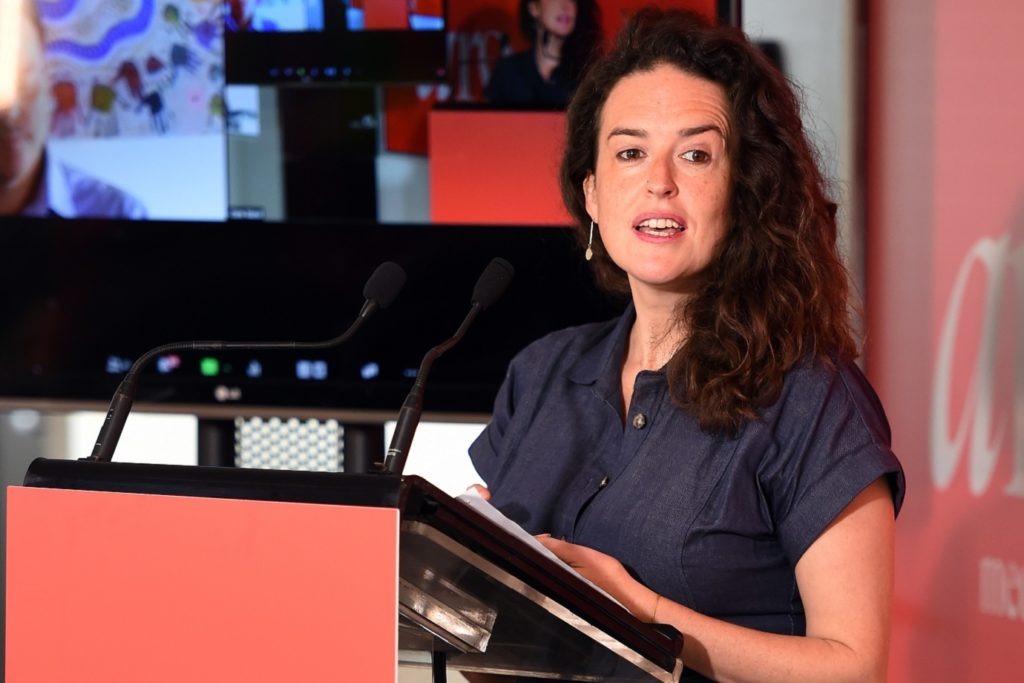This speech was delivered by Jess Hill on Monday, October 12, at the launch of the Criminalise Coercive Control Campaign, spearheaded by a coalition of advocacy and legal groups. The campaign is calling on State and Territory governments to take immediate steps towards criminalising coercive control.
I want to make clear from the outset: criminalising coercive control will not magically fix our deeply flawed justice system. These systems – police, courts, family law – do not consistently protect victims, and can even place them in greater danger. They must come under greater scrutiny during this campaign.
But criminalising coercive control will replace the broken lens we have on domestic abuse: instead of seeing a collection of incidents, it will make visible the system of abuse that endangers – and even kills – so many women and children.
So how do we accomplish this?
Obviously we can’t just cut and paste foreign legislation. But we can look at how other countries have criminalised it. When Scotland criminalised coercive control last April, senior Scottish police hailed the new laws as ‘groundbreaking’, saying ‘for the first time, it will allow us to investigate and report the full circumstances of an abusive relationship.’
Within a year, police had referred more than a thousand charges to prosecutors; 96 per cent of those were being heard in court, and 96 per cent of perpetrators were male. We don’t know how many have been convicted, but interestingly, prosecutors have said that proving coercive control is actually easier than proving specific incidents of domestic violence, because since they’re proving ongoing behaviour, they can bring so much more evidence into court than they could before.
To prove coercive control, prosecutors must demonstrate a pattern of 2 or more abusive behaviours that a reasonable person would see as causing the victim-survivor to experience fear, alarm or distress. This includes:
- Isolating a person from friends and family
- Depriving them of basic needs
- Monitoring them through online communications tools or spyware
- Taking wages and benefits
- Threats to reveal or publish personal information
- Threats to harm a child
- Threats to hurt or kill
- Criminal damage (like destruction of property)
There is nothing more important than getting the wording of this legislation exactly right.
Jess Hill
All of these harms – physical, sexual, psychological, surveillance – are considered equal. Also, critically, the law does not distinguish between those who intended to cause physical or psychological harm and those who were reckless as to whether their behaviour would cause harm. This speaks to what we know about perpetrators – some use coercive control intentionally, as a modus operandi in all their relationships, while others may deploy the same techniques spontaneously – almost unconsciously. But whether their abuse is intentional or instinctive doesn’t matter to the victim – the harm is the same.
There is nothing more important than getting the wording of this legislation exactly right. The Scottish government didn’t just consult the women’s sector on these laws – they had them co-write the legislation. It took them four years to get it right. We must have the same level of collaboration here, and deep conversations must be had within the sector, with victim-survivors, legal experts, and people for and against criminalising. All must play a part in drafting it.
Fewer than 20 per cent of people being victimised right now have ever reported to police. We will never get even close to 100 per cent – and nor should we try. The criminal justice system is right for some, and not for others. For those who want to use it, we must make it more responsive and protective. For those who don’t, we must ensure – and fund – other pathways to safety.
Coercive control is not just something that happens inside our homes – it extends through our systems, the same systems we entrust to protect us. A critical part of this campaign must be to reform these systems as we change the laws. I believe this law will help to drive the reform that victim-survivors so badly need.
I’m encouraged by what victim-survivors have told the head of Scottish Women’s Aid, Marsha Scott, since the laws were introduced. As Marsha says: for 40 years, women and children have said that the emotional and psychological violence is the most traumatic, the hardest to recover from, the most minimised by the system. Now we’re hearing them say, ‘Oh my God, the police asked me questions about what I really care about.’
In Scotland, England, Wales and Ireland domestic abuse is actually now a crime. I look forward to the day when we can say the same in Australia.
If you or someone you know is in immediate danger, call 000.
If you need help and advice, call 1800Respect on 1800 737 732, Men’s Referral Service on 1300 766 491 or Lifeline on 13 11 14.


